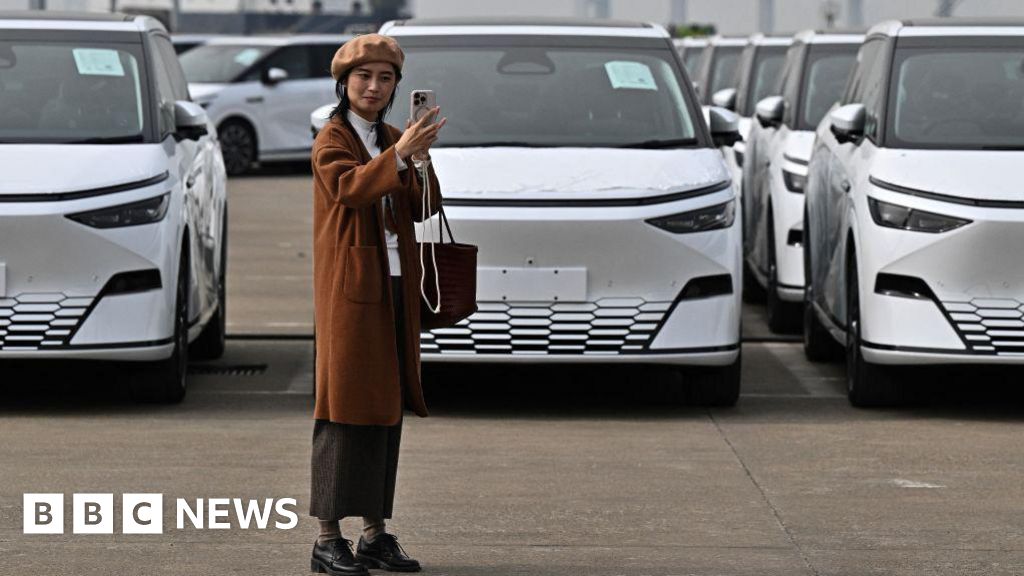
GUANGZHOU – In a significant shift, nearly half of all cars sold in China last year were electric, marking a pivotal moment in the global automotive industry.
Immediate Impact
“I drive an electric vehicle because I am poor,” says Lu Yunfeng, a private hire driver, at a charging station on the outskirts of Guangzhou. “The cost of driving a petrol car is too expensive. I save money driving an electric vehicle,” he adds, leaning against his white Beijing U7 model.
In many countries, electric vehicles (EVs) are considered luxury items. However, in China, it’s a commonplace reality, underscoring the nation’s rapid adoption of electric technology.
Key Details Emerge
At the dawn of the 21st century, China’s leadership set forth ambitious plans to dominate future technologies. Today, China stands as the world’s leader in electric vehicles, transforming its bustling cities into quieter, eco-friendly hubs.
“When it comes to EVs, China is 10 years ahead and 10 times better than any other country,” says auto sector analyst Michael Dunne.
Fact: Almost half of all cars sold in China last year were electric.
Industry Response
China’s BYD has overtaken US rival Tesla, leading the global EV market. The company’s success is bolstered by a vast domestic market of over 1.4 billion people and a strategic push to sell more cars internationally.
Chinese start-ups are also making affordable EVs for the mass market, further solidifying China’s lead.
The Master Plan
Analysts often credit Wan Gang, a German-trained engineer and former minister of trade and science, for China’s EV dominance. Recognizing the need to compete with foreign brands, Wan Gang championed a move towards electrics.
China’s government has provided substantial subsidies since the 2010s, driving the industry forward. The Center for Strategic and International Studies (CSIS) estimates that Beijing spent approximately $231 billion from 2009 to 2023 to develop the EV industry.
Statistic: $231 billion spent by Beijing on EV industry development from 2009 to 2023.
By the Numbers
China’s extensive planning and funding have allowed it to dominate critical supply chains in battery production. The country boasts the world’s largest public charging network, with stations concentrated in major cities.
“If you want to manufacture a battery to put into an electric car today, all roads go through China,” says Dunne, highlighting the strategic advantage China holds.
Expert Analysis
Western countries often criticize China’s approach as “state capitalism,” but Chinese EV executives argue that all companies, domestic or foreign, have access to the same resources.
“The Chinese government is doing the same thing you see in Europe and in the US – providing policy support, consumer encouragement, and infrastructure,” Brian Gu, president of EV maker XPeng, tells the BBC.
Regional Implications
XPeng, one of the “Chinese champions,” is already among the world’s top 10 EV producers. The company has attracted top graduates to its headquarters in Guangzhou, driving innovation and competition.
Young Chinese consumers are drawn to top-of-the-line technology, bolstered by government incentives that make EVs financially attractive.
Quote: “An EV just makes sense for me,” says Lu Yunfeng, highlighting the economic benefits of electric vehicles.
The Road Ahead
While government subsidies have fueled China’s EV growth, international reactions are mixed. The US, Canada, and the EU have imposed import taxes on Chinese EVs, but the UK remains open, providing opportunities for companies like XPeng and BYD to expand.
This development is crucial as Western governments support the transition to EVs, which the United Nations deems “pivotal” to averting climate disaster.
Fact: The UK remains open to Chinese EV imports, unlike the US, Canada, and the EU.
As China continues to lead in electric vehicle innovation and infrastructure, the global automotive landscape is poised for significant change, with China at the helm of this transformation.





